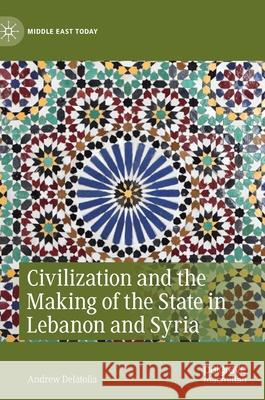Civilization and the Making of the State in Lebanon and Syria » książka
topmenu
Civilization and the Making of the State in Lebanon and Syria
ISBN-13: 9783030576899 / Angielski / Twarda / 2021 / 285 str.
Civilization and the Making of the State in Lebanon and Syria
ISBN-13: 9783030576899 / Angielski / Twarda / 2021 / 285 str.
cena 483,04
(netto: 460,04 VAT: 5%)
Najniższa cena z 30 dni: 462,63
(netto: 460,04 VAT: 5%)
Najniższa cena z 30 dni: 462,63
Termin realizacji zamówienia:
ok. 22 dni roboczych.
ok. 22 dni roboczych.
Darmowa dostawa!
Kategorie BISAC:
Wydawca:
Palgrave MacMillan
Seria wydawnicza:
Język:
Angielski
ISBN-13:
9783030576899
Rok wydania:
2021
Wydanie:
2021
Numer serii:
000412774
Ilość stron:
285
Waga:
0.50 kg
Wymiary:
21.01 x 14.81 x 1.75
Oprawa:
Twarda
Wolumenów:
01
Dodatkowe informacje:
Wydanie ilustrowane











